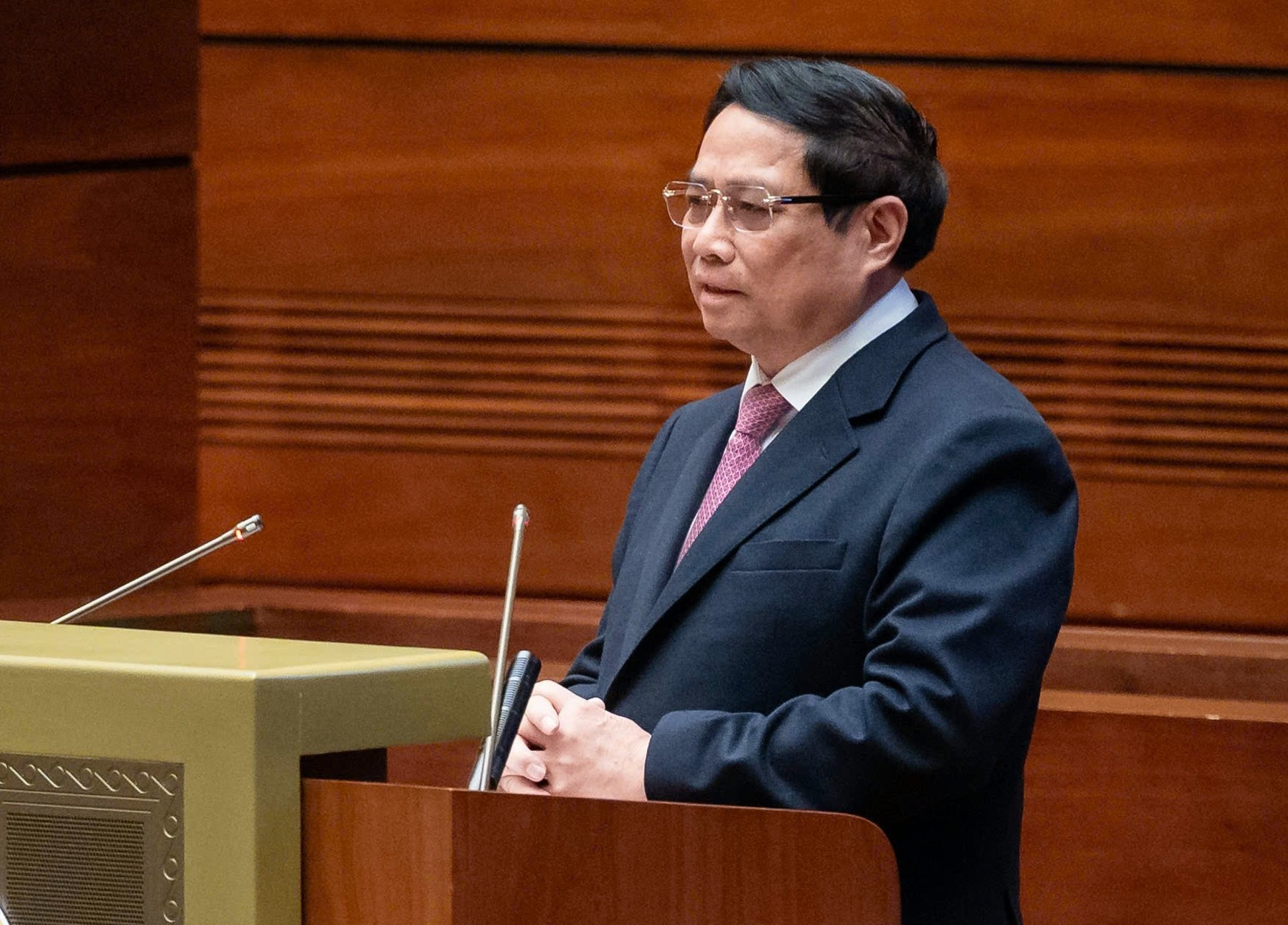
On the morning of January 13th, the Secretariat of the Central Committee of the Communist Party organized a national conference on making breakthroughs in the development of science, technology, innovation, and national digital transformation, both online and offline, with the participation of 1 million Party members.
At the conference, Chinh emphasized that science, technology, innovation, and digital transformation are the major pillars and powerful drivers for Vietnam to grow rapidly and sustainably, keeping pace with developed countries, avoiding the risk of lagging behind and standing shoulder with technology powerhouses.
Chinh cited the most recent World Bank report titled "The Middle-Income Trap" as saying that Vietnam has GDP per capita of $4,700 in 2024 and if it maintains an average growth rate of 7 percent annually, it will only be able to join the high-income group (around $13,800 per capita) by 2040.
The head of the government pointed out that if growth doesn’t increase, Vietnam cannot become a high-income developed country.
"The aspiration for a prosperous, wealthy and modern Vietnam which can soon join the group of high-income developed countries has become more burning than ever."
To realize the aspiration, the Prime Minister asserted there's no other way for Vietnam but to focus all efforts on science, technology, innovation, and digital transformation.
Seven groups of tasks
The government has decided that implementing Resolution 57 is a key political task. The action program on implementing the resolution, set by the government, outlines 41 target categories (including 35 specific targets by 2030, six specific targets by 2045) and seven task groups with 140 specific tasks.
The first task group involves raising awareness, making breakthroughs in mindset, and defining strong political determination to create new momentum and enthusiasm throughout society for the development of science, technology, innovation, and digital transformation.
The government clearly outlined key tasks, such as launching a national emulation movement to maximize the synergy of the entire political system and active participation from entrepreneurs, businesses, and the populace in implementing the revolution in science, technology, innovation, and digital transformation.
The next task group is urgently and decisively completing institutional framework; eliminating all thoughts, perceptions, and barriers hindering development, making the institutional framework into a competitive edge in developing science, technology, innovation, and digital transformation with 28 specific tasks.
Reminding that this as a particularly crucial task group, the Prime Minister said: "As Party Chief To Lam instructed, we must ensure openness, creativity with innovative thinking of 'managing strictly while fostering development, maximizing resources for development, creating new development spaces,' establishing a legal framework to efficiently mobilize and utilize all resources for development."
For this group of tasks, the government has mentioned key priorities, including the building of the Law on Science, Technology, and Innovation, and the Law on Digital Technology Industry to be presented to the National Assembly by 2025.
It is also necessary to establish experimental and specialized mechanisms in science, technology, innovation, and digital transformation; and enact regulations on venture capital funds and supportive mechanisms for innovative startups.
The third group of tasks is strengthening infrastructure investment for science, technology, innovation, and digital transformation with 34 specific tasks.
Chinh emphasized that "infrastructure must always precede" to meet the increasingly high demands of the digital economy and digital society.
Key tasks include launching a national program for strategic technology and industrial development; establishing national key research and testing centers, laboratories; building and operating the National Data Center; and developing modern digital infrastructure, telecommunications, Internet, digital physical infrastructure, digital utility infrastructure, and shared national digital platforms across sectors and fields.
The fourth task group focuses on developing and valuing high-quality manpower and talent to meet demand for development in science, technology, innovation, and digital transformation with 12 specific tasks.
Developing policies to nurture and value high-quality talent is crucial, serving as the "key" to success.
The fifth task group is accelerating digital transformation, applying science, technology, and innovation at state agencies; improving the effectiveness of national governance and the efficiency of state management, ensuring national defense and security with 27 tasks.
The sixth task group focuses on vigorously promoting science, technology, innovation, and digital transformation activities in enterprises with 16 specific tasks.
According to the Prime Minister, during the formation and development of a digital economy, enterprises are the "locomotives," playing a vital role in the ecosystem of science, technology, and innovation.
The seventh task group aims to enhance international cooperation in developing science, technology, innovation, and digital transformation with nine tasks.
Thu Hang